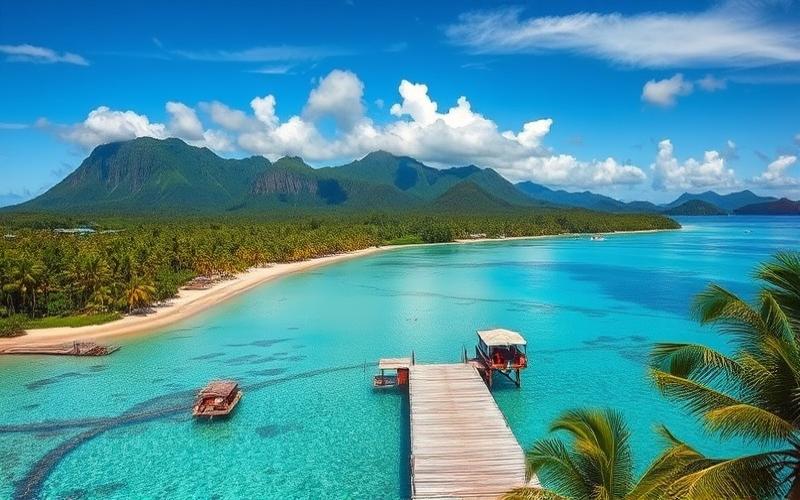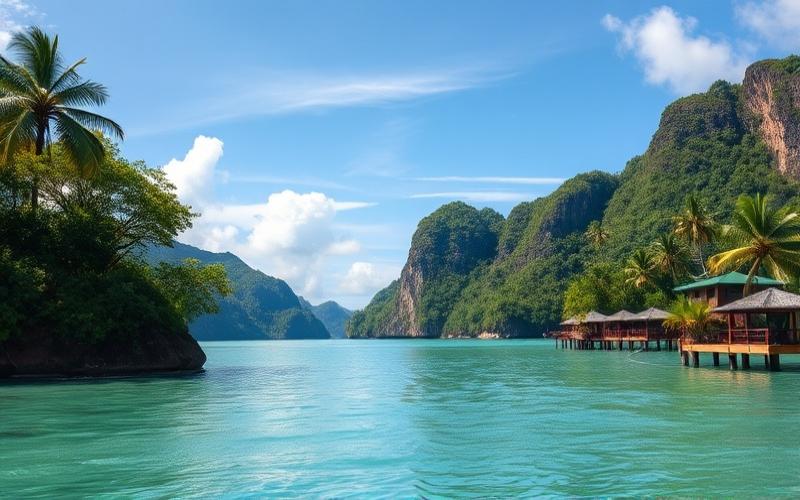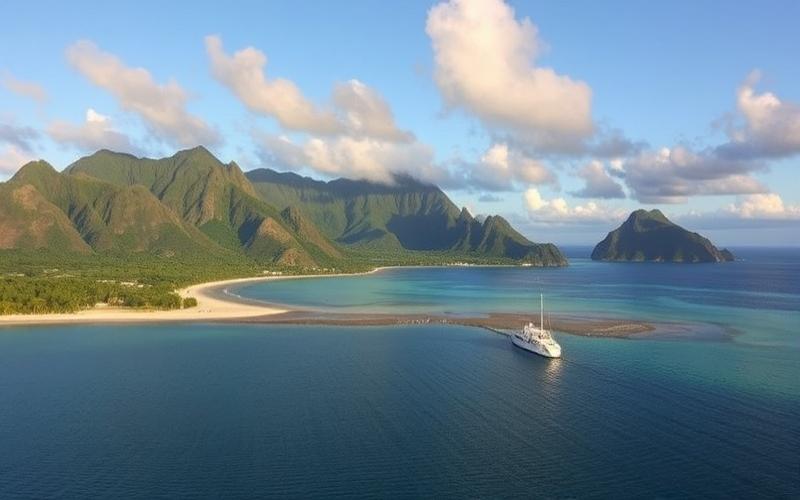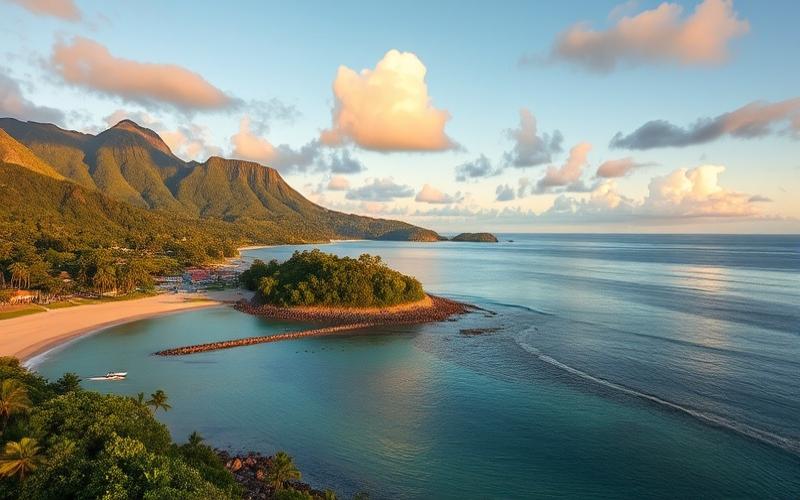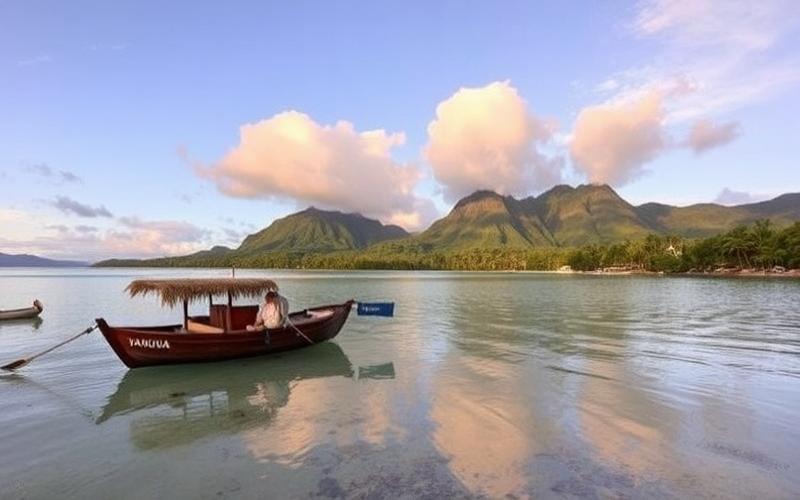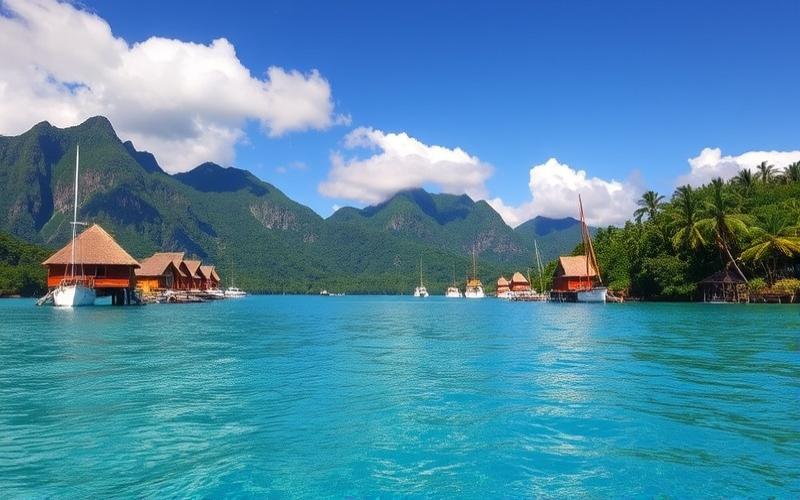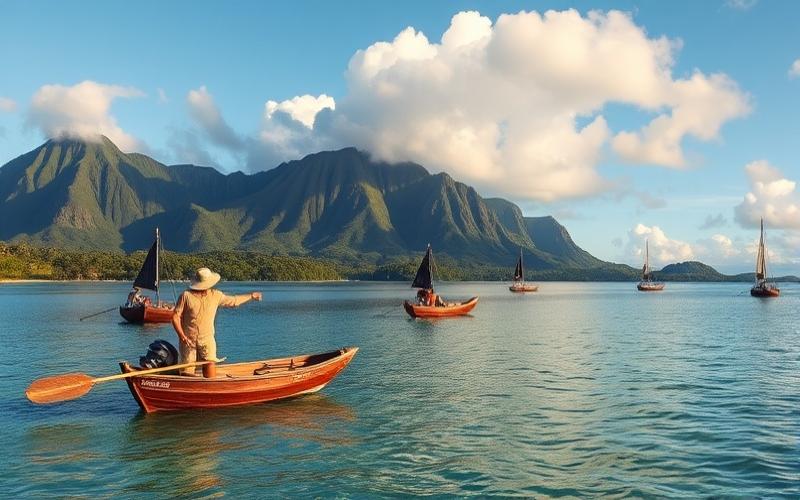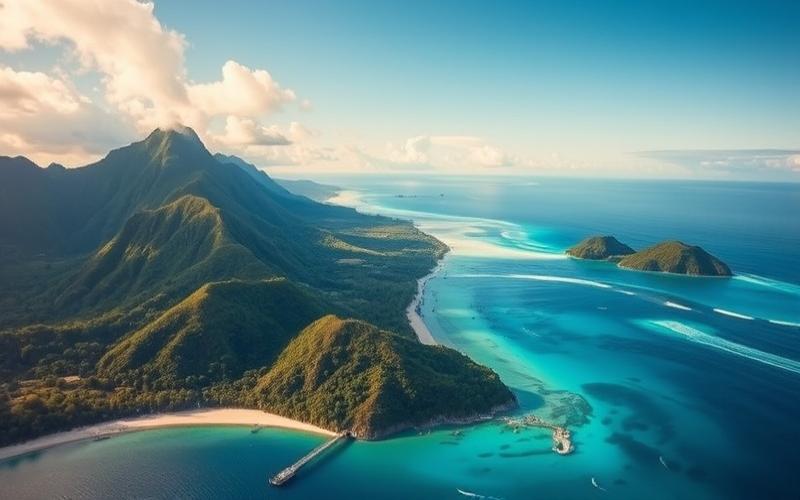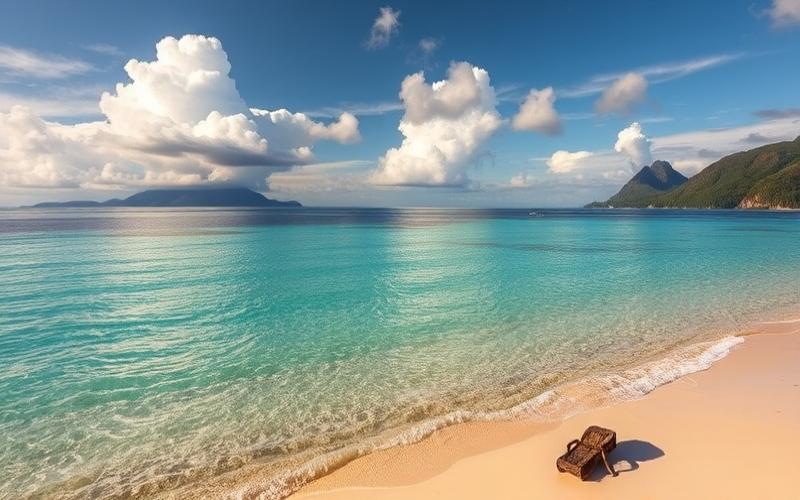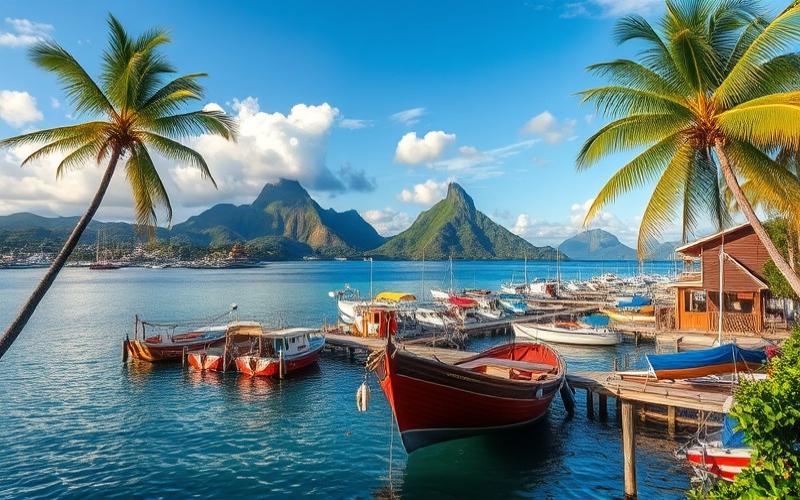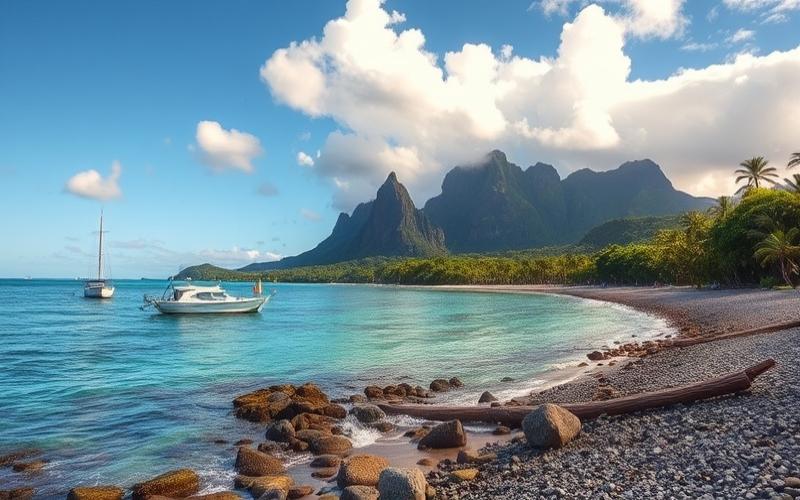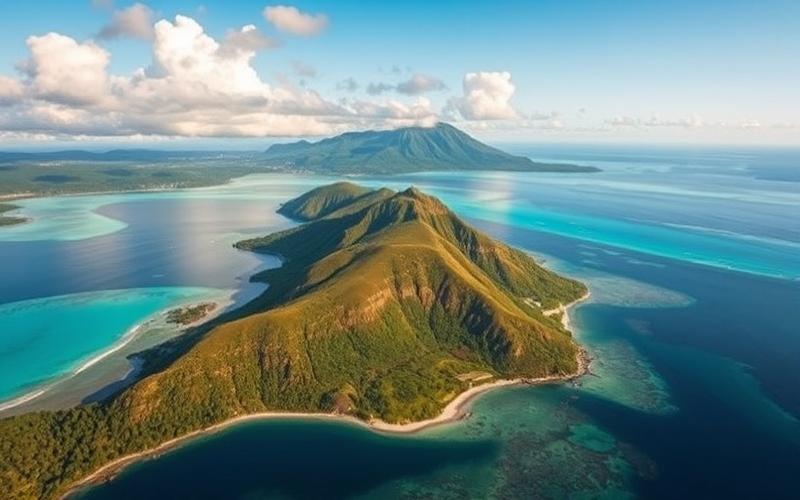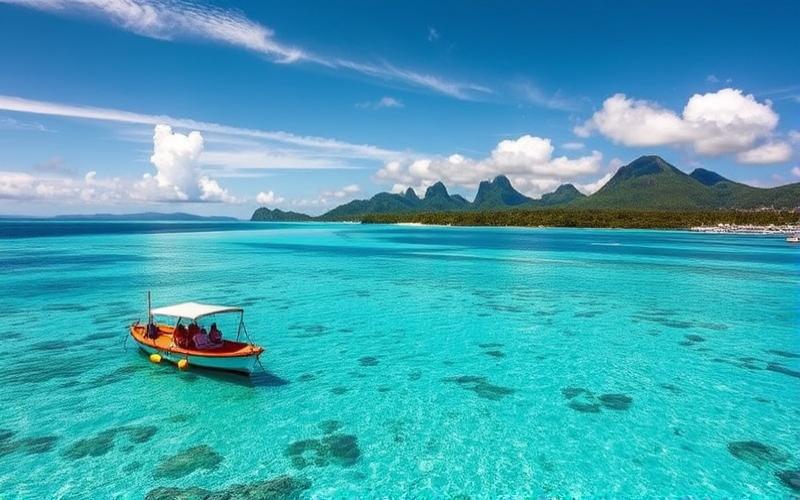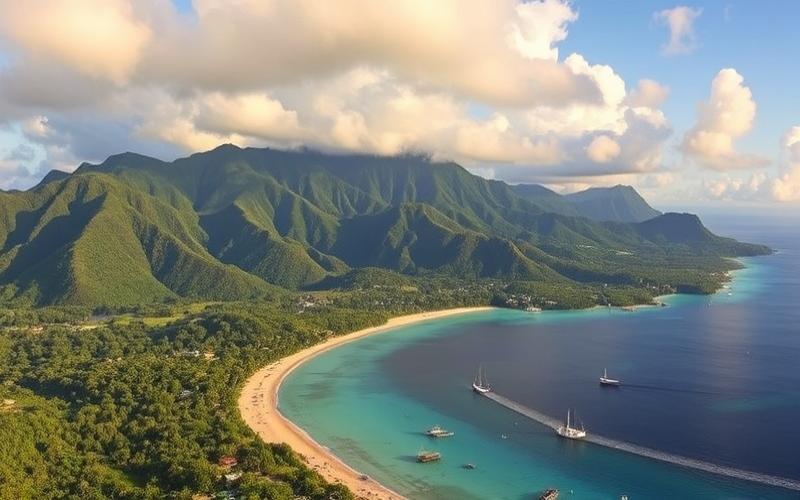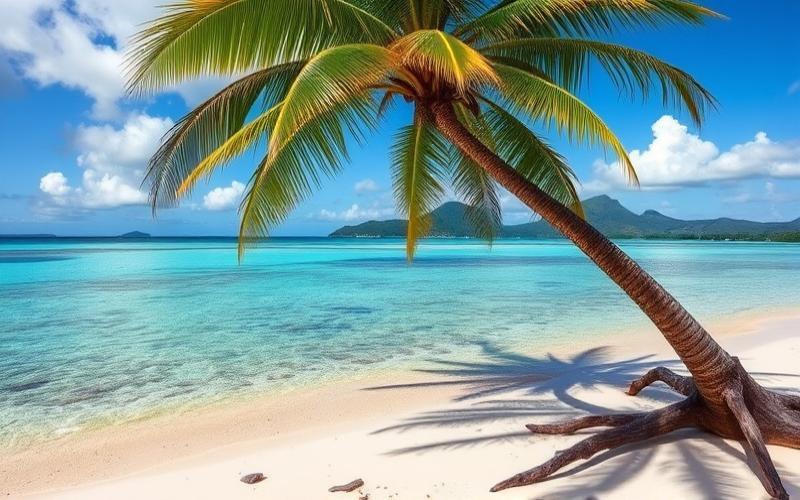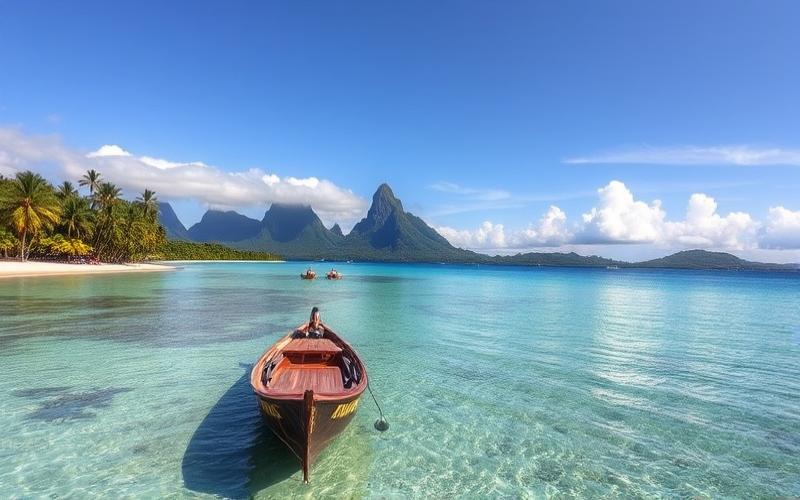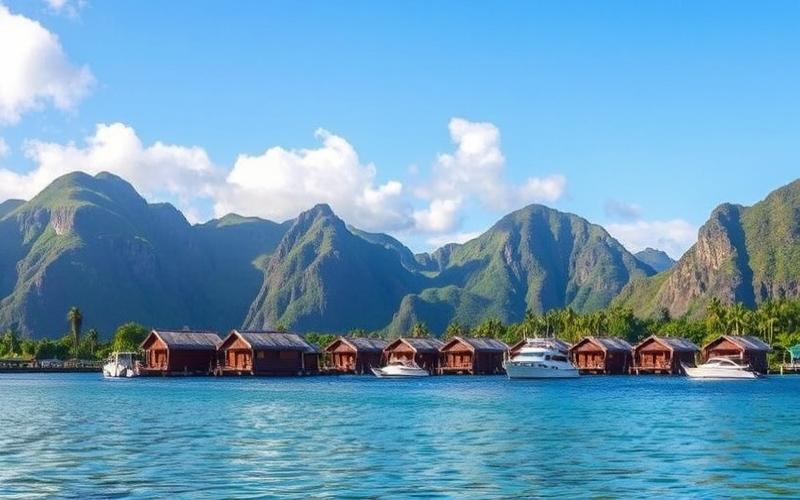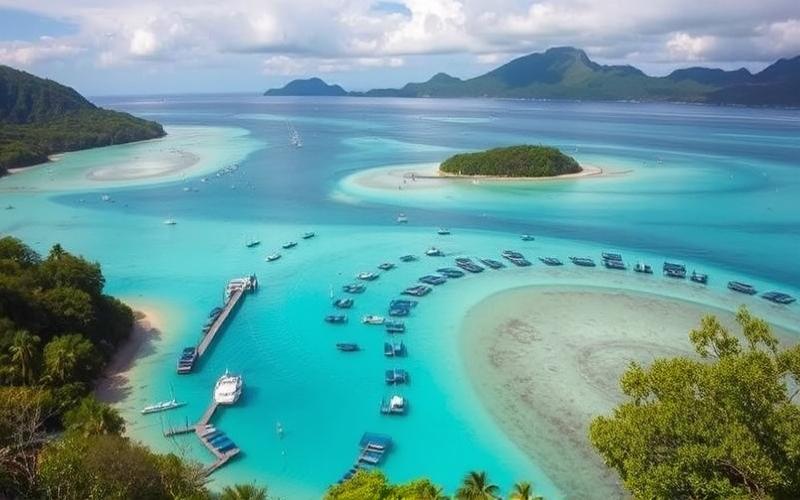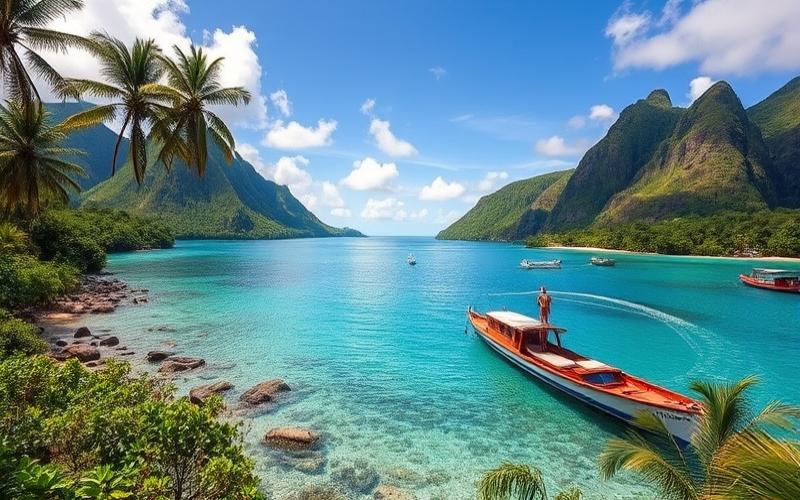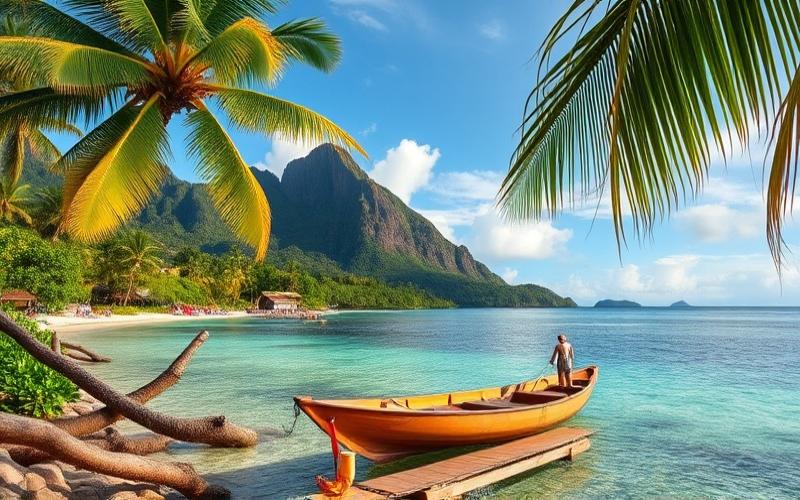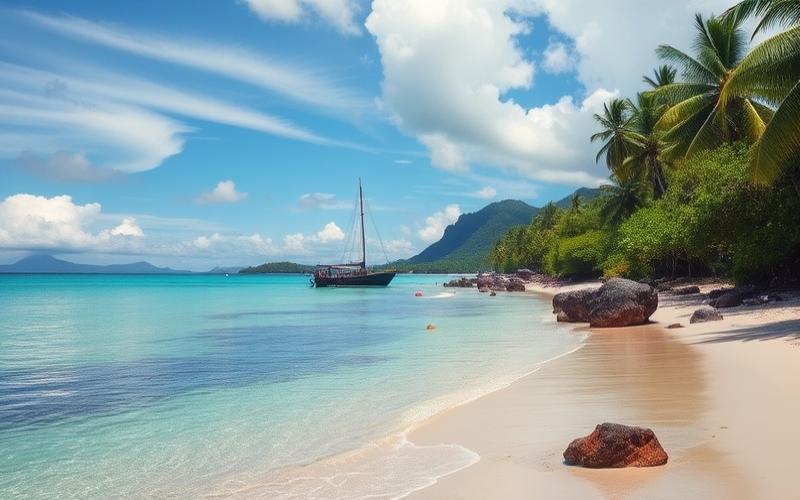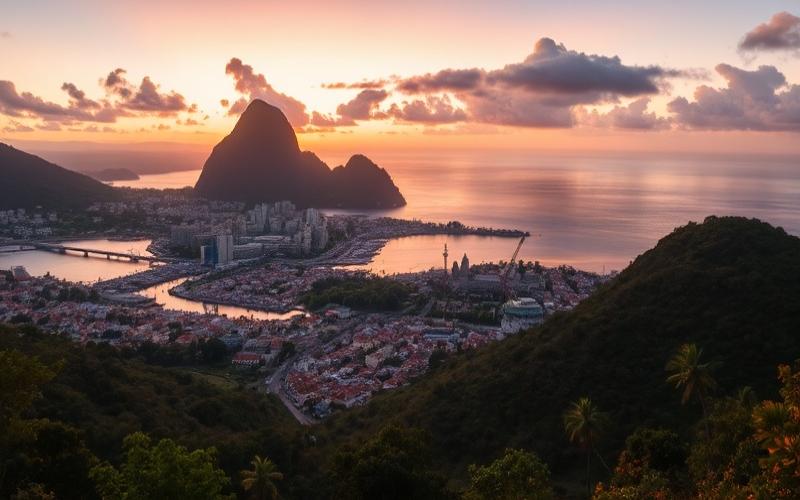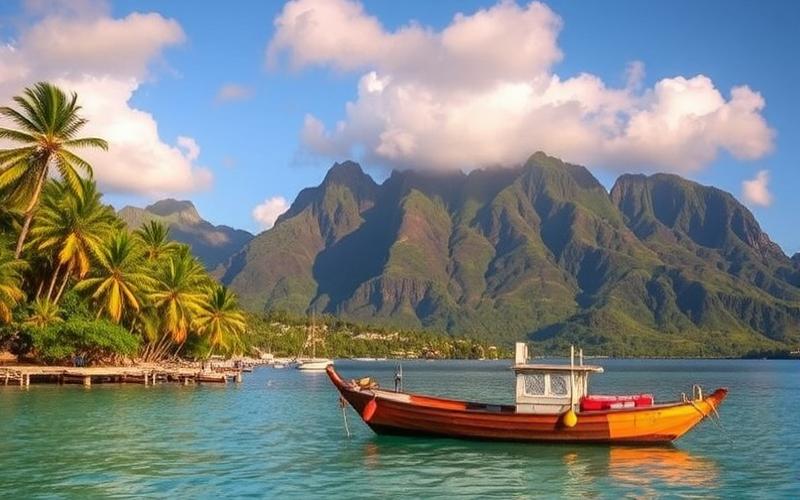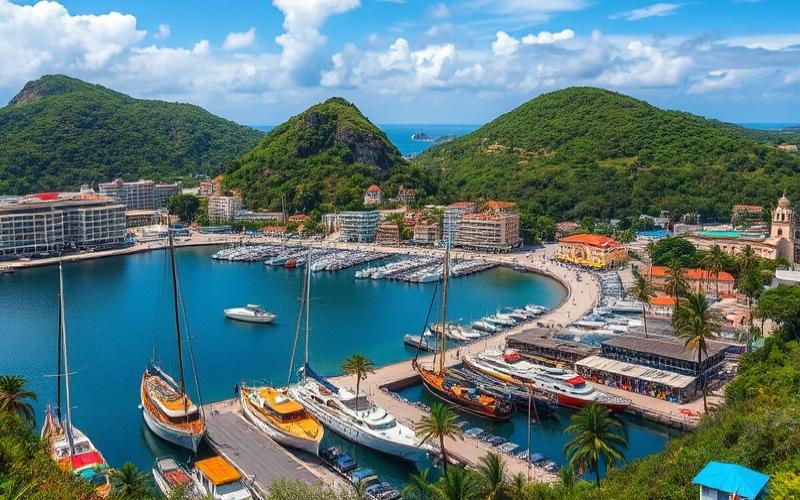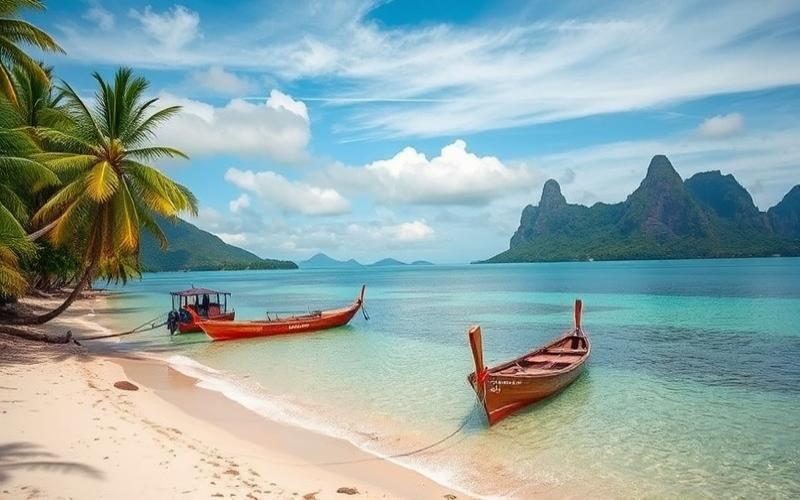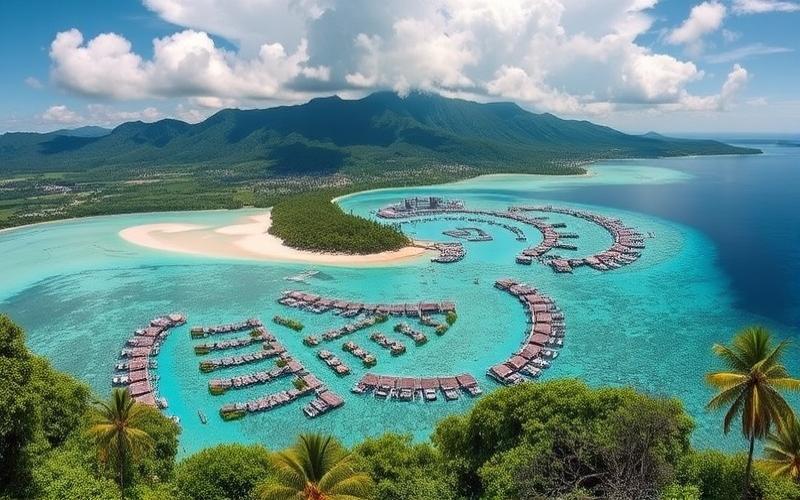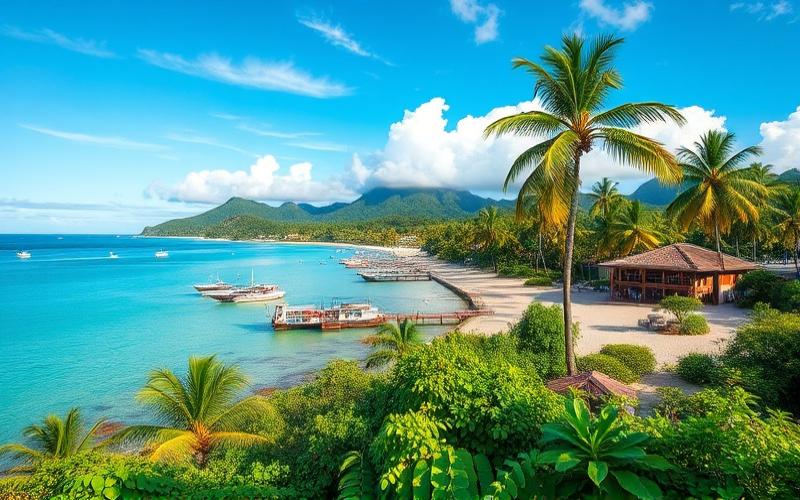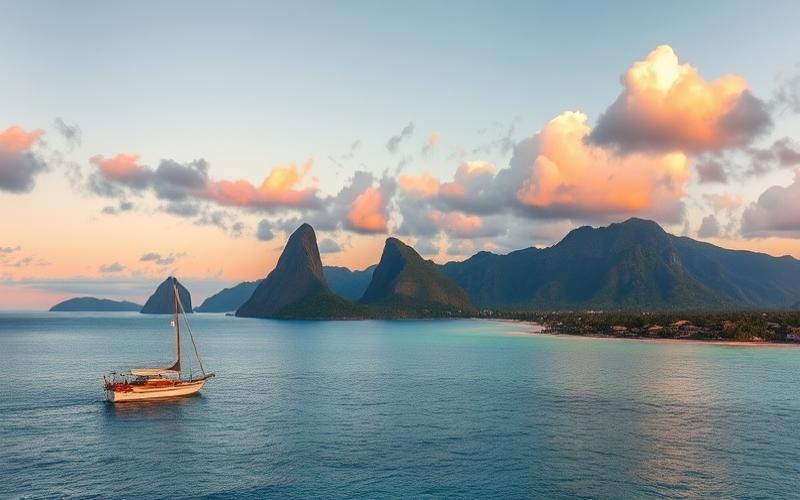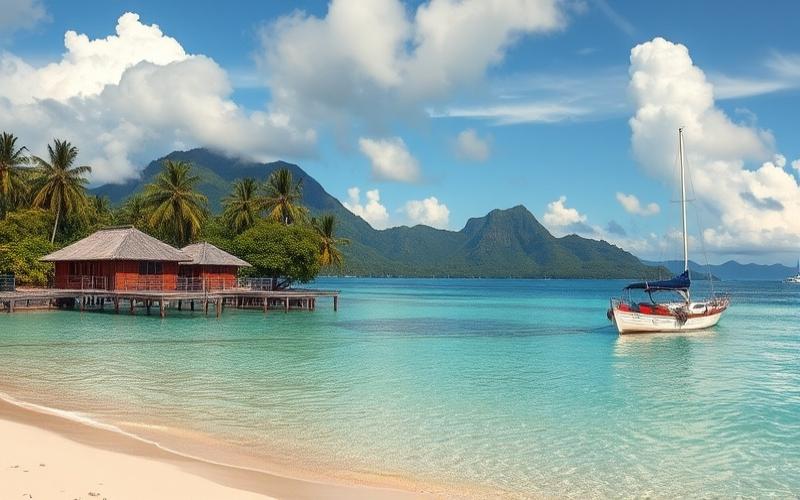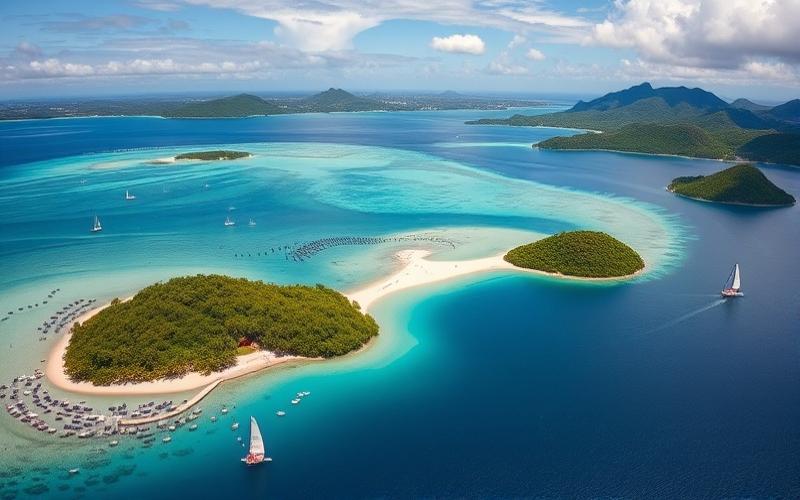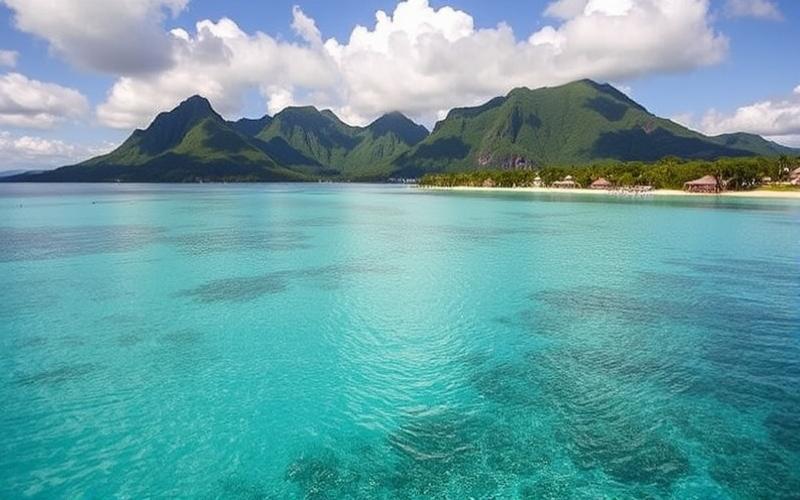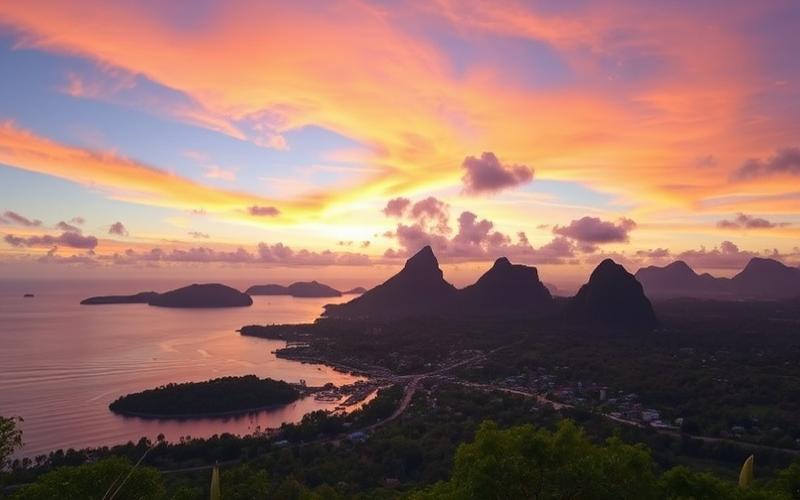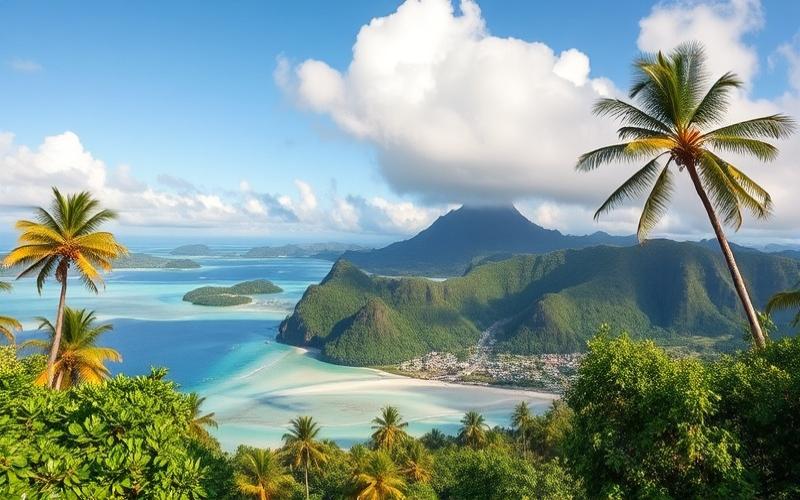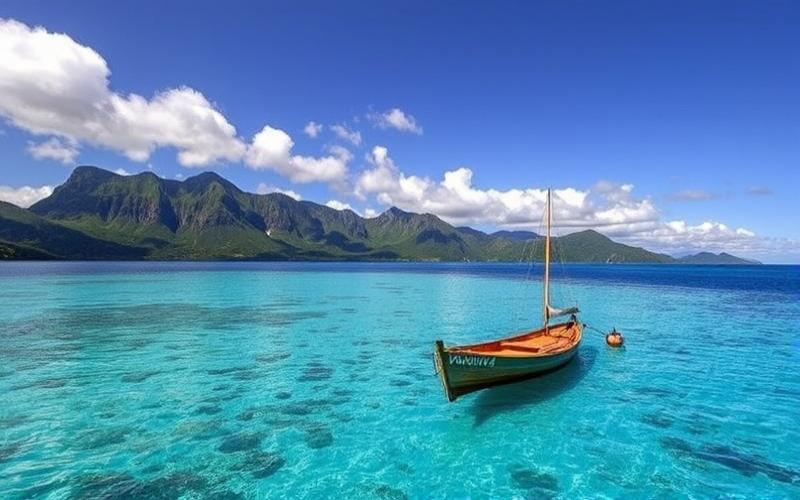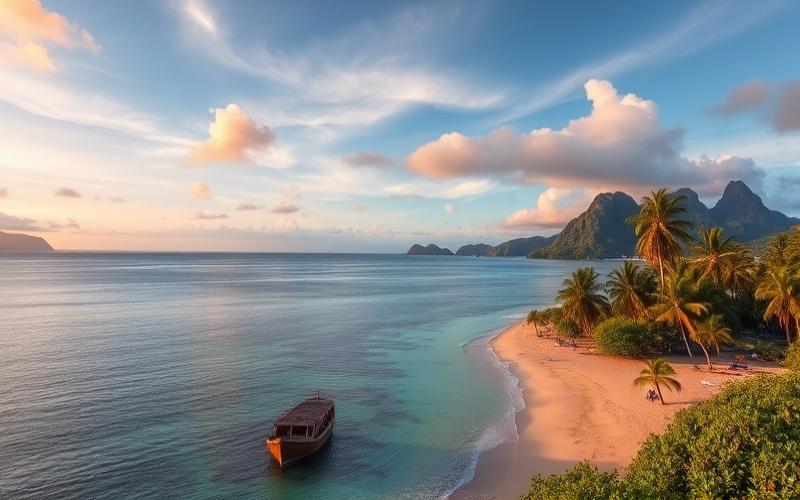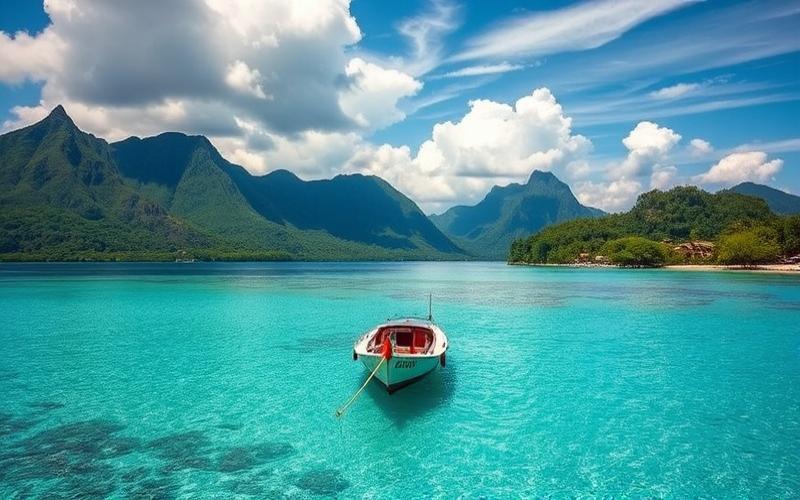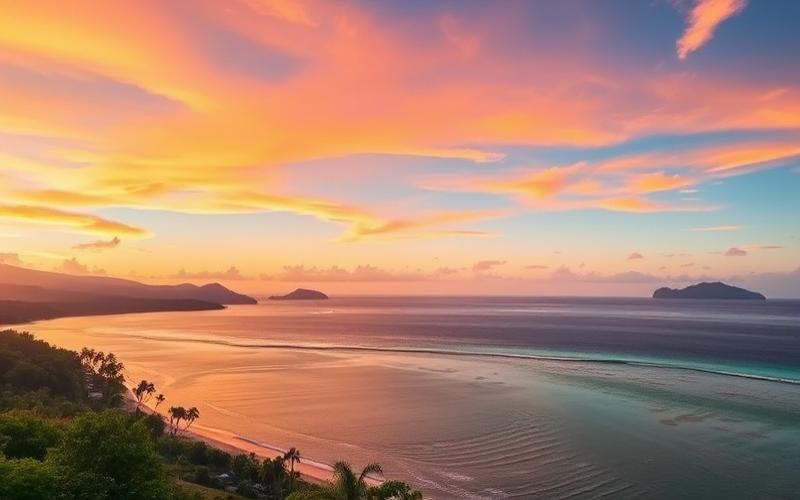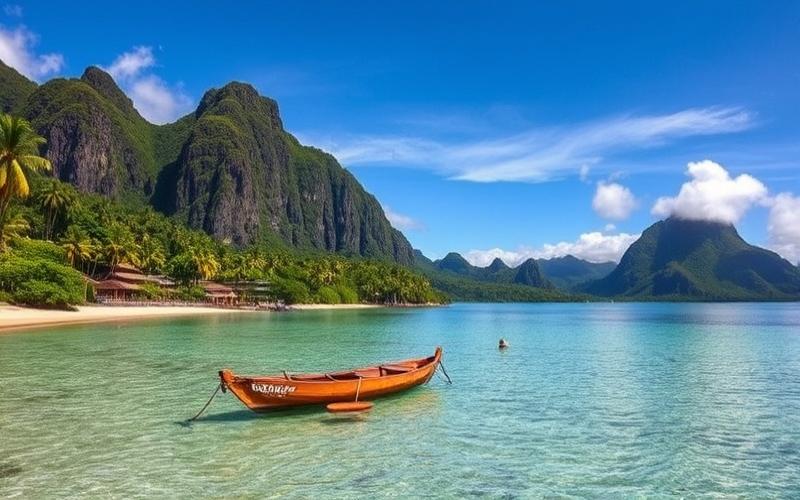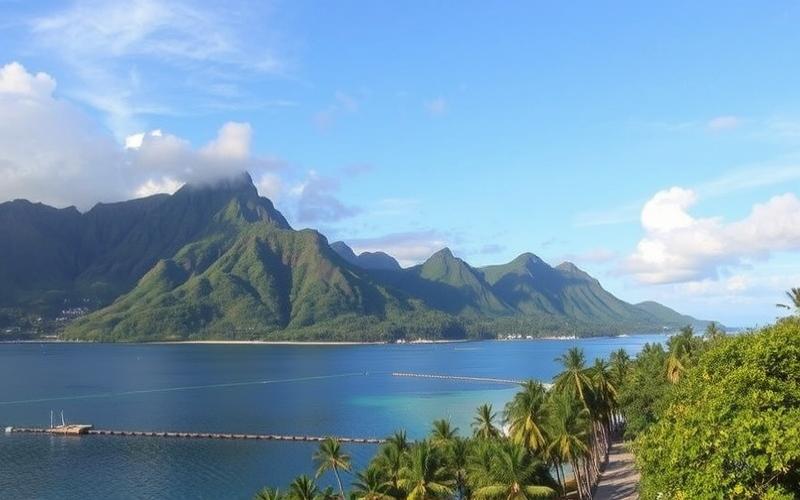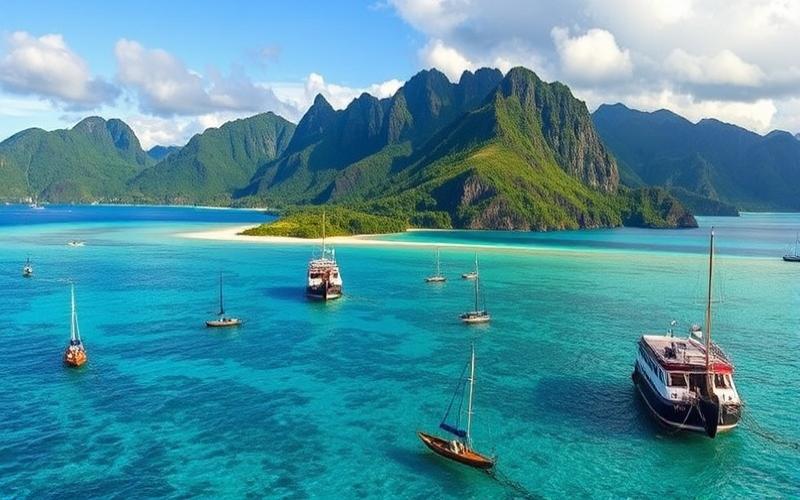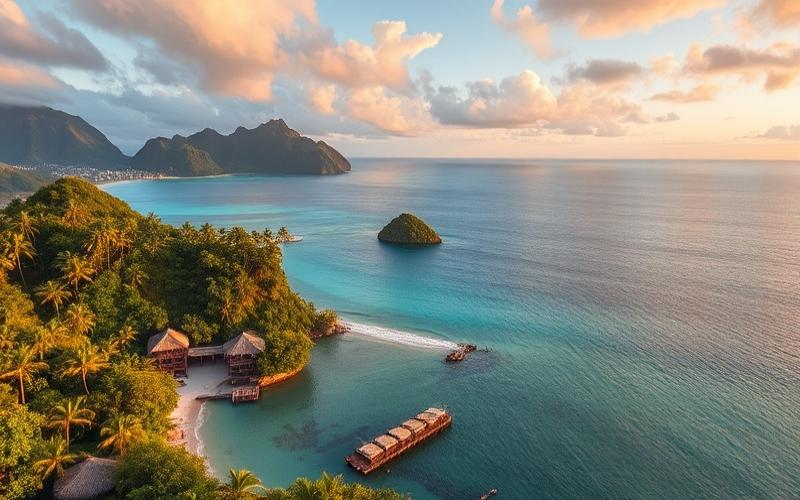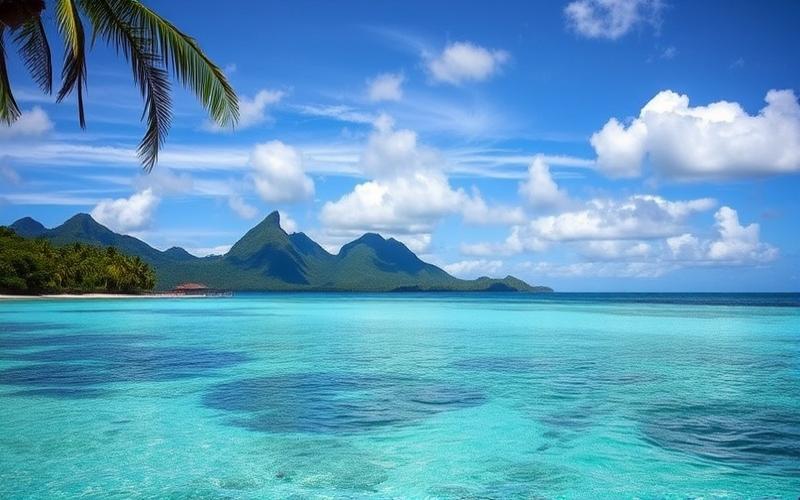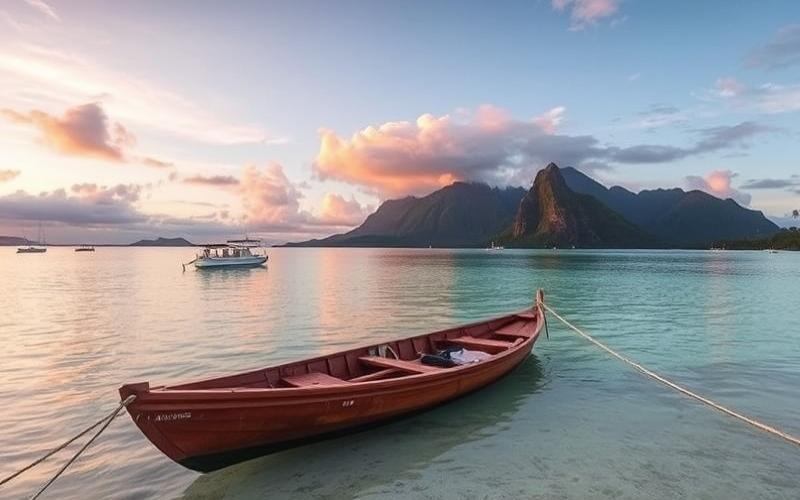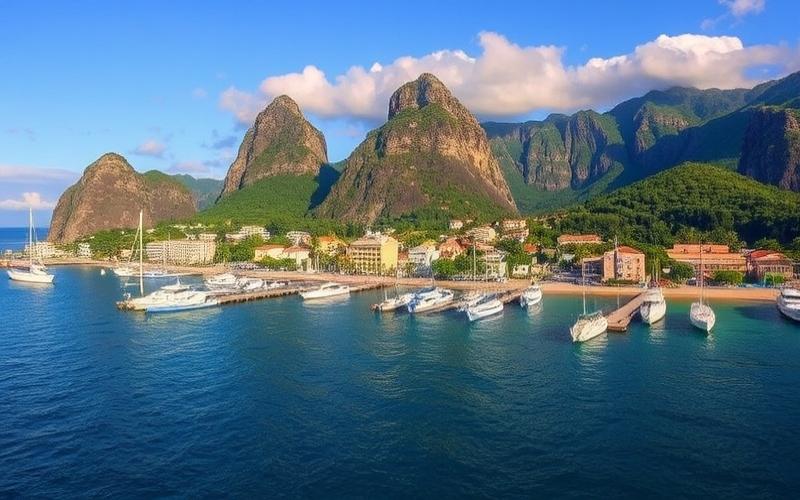
 Published on and written by Cyril Jarnias
Published on and written by Cyril Jarnias
In the current real estate context, many property owners are questioning the profitability of their assets in Vanuatu, torn between the lucrative appeal of Airbnb and the stability of long-term rentals. This article explores the delicate balance between these two options, offering a detailed city-by-city analysis to determine which presents the best income potential.
While popular cities can offer varying returns depending on the season, it’s crucial to examine concrete figures and local trends. We’ll dive into current data to determine where the most advantageous opportunity truly lies for investors seeking to maximize their profitability in this enchanting island nation.
Comparison of Returns Between Airbnb and Long-Term Rentals in Vanuatu
| Vanuatu City | Average Monthly Airbnb Revenue* | Airbnb Occupancy Rate (%) | Average Price Per Night (USD) | Monthly Long-Term Rental Revenue* | Airbnb Management Costs (%) | Long-Term Rental Management Costs (%) |
|---|---|---|---|---|---|---|
| Port-Vila | ~1,100 | 40–55 | 60–80 | ~700 | 20–25 | 8–12 |
| Luganville | ~900 | 35–50 | 50–70 | ~600 | 20–25 | 8–12 |
*Estimates based on regional comparisons and similar profiles in the Pacific Ocean.
Key Differences Influencing Profitability:
Generated Revenue
Short-term rentals (Airbnb) offer higher return potential, particularly during peak tourist season when the price per night can double or triple. However, this profitability is strongly tied to occupancy rates, which drop during off-peak periods, affecting overall annual income.
Occupancy Rates and Seasonality
Tourist demand in Vanuatu is highly seasonal: June to September shows the best occupancy rates (>70%), while the low season sometimes sees these figures drop below 30%. Many owners then switch to medium or long-term rentals to stabilize their cash flow.
Associated Costs
Airbnb management involves higher fees (frequent cleaning, increased maintenance, platform commissions), often representing up to a quarter of gross revenue. Conversely, long-term rentals stand out for their reduced costs and stability: less tenant turnover and simplified management.
Local Regulations
Vanuatu doesn’t strictly regulate short-term rentals, but some municipalities are already considering special permits to address rental imbalances in city centers. Applicable taxation remains moderate but subject to change due to the growing influence of international tourism.
Local Testimonials
“We achieve our best months with Airbnb during the Australian winter; off-season we switch to six-month leases to guarantee stable income,” explains Sophie M., property owner in Port-Vila.
“The expenses are much heavier with Airbnb – cleaning between each guest and commissions – but the extra income largely compensates if you optimize your calendar,” adds Etienne L., local investor.
“For those who don’t live on-site or don’t want to deal with constant turnover, long-term rentals remain preferable despite lower returns,” analyzes Julie R., independent real estate agent.
Recent Vanuatu Real Estate Market Statistics:
- Average annual price increase: +3% over two years
- Growing share of furnished tourist rentals (+18% over twelve months)
- Increase in properties listed on platforms like Airbnb (+24% between January 2024 and March 2025)
—
Investors must therefore choose between:
- Potentially higher profitability through Airbnb but subject to local tourism fluctuations,
- Secure income with less effort through long-term rentals,
while considering their capacity/willingness to actively manage their property and possible regulatory changes.
Good to Know:
In Vanuatu, the returns from Airbnb and long-term rentals vary significantly by city. For example, in Port-Vila, Airbnb rentals often generate higher revenue thanks to average nightly rates ranging from 50 to 100 euros, compared to an average monthly income of about 600 euros for long-term rentals. However, Airbnb occupancy rates can drop during the off-season, while long-term rentals offer greater stability. Management costs, including cleaning and booking management for Airbnb, are often higher, although they can be offset by higher daily rates. Local regulations aren’t uniform and can influence investment choices, with some cities imposing restrictions on short-term rental durations. Local investors emphasize that actively managing an Airbnb property requires significant time, a factor to weigh against the less intensive management of long-term rentals. Recent statistics indicate growing demand for short-term stays, especially during summer season, which can compensate for quieter months.
Data Analysis for Decision Making
| City | Monthly Airbnb Revenue (Median) | Airbnb Occupancy Rate | ADR (Average Daily Rate) | Monthly Long-Term Rental Revenue* | Airbnb Peak Season | Airbnb Low Season |
|---|---|---|---|---|---|---|
| Port Vila | $1,220 | 29% | $253 | ~$750–900 | September | February |
| Mele | $2,088 | 27% | $268 | ~$800–950 | August | December |
*Estimate based on current local market.
Key Statistics:
- The best-managed properties in Port Vila exceed $5,094 per month in short-term rentals, while most hover around the median ($1,220).
- In Mele, the top of the market exceeds $23,643, but the median remains around $2,088.
- Occupancy rates remain moderate (between 27 and 29%) despite seasonal tourist influx.
- Long-term rental income is stable but capped, with little seasonal fluctuation.
List of Main Factors Influencing Profitability:
- Strong Tourist Seasonality: maximum revenue between August and September depending on the city; low revenue during Australian summer or off-peak tourist season.
- Specific Events: cultural festivals, sports competitions, or international conferences can temporarily boost occupancy and nightly rates in certain locations.
- Dynamic Pricing Management: regularly adjusting prices helps offset off-season drops and optimize demand peaks.
Economic Advantages – Airbnb:
- Potentially two to three times higher revenue during peak season compared to equivalent traditional rentals.
- Flexibility to quickly adjust prices and availability to local tourism market variations.
Economic Disadvantages – Airbnb:
- Strong dependence on international tourism, leading to increased volatility during health or geopolitical crises.
- Additional costs related to frequent tenant turnover (cleaning, increased maintenance).
Economic Advantages – Long-Term Rentals:
- Stable income year-round with low vacancy rates.
- Simplified management; less exposed to variable costs related to regular client changes.
Economic Disadvantages – Long-Term Rentals:
- Capped returns despite recent real estate price increases (+9.5% average over one year).
Practical Recommendations for Real Estate Investors in Vanuatu:
To maximize their returns in a context marked by strong tourist seasonality, owners with attractive, well-located properties are advised to use short-term rentals via Airbnb during peak periods and potentially switch to medium/long-term rentals during low seasons.
For those seeking security and administrative/tax simplicity – or whose property is located outside major tourist areas – opting for traditional leases remains wise.
In summary: Short-term rentals via platforms like Airbnb offer significantly higher potential in dynamic tourist areas like Port Vila or Mele, provided there’s active management. However, stability remains the main advantage of traditional leases in this same market where volatility sometimes rhymes with high profitability… but also increased risk.
Good to Know:
Analyzing numerical data for Airbnb rental profitability compared to long-term rentals in Vanuatu reveals notable differences by city. For example, in Port-Vila, the average occupancy rate for Airbnb reaches 70%, generating average monthly revenues of approximately 120,000 VUV, compared to 80,000 VUV for long-term rentals with a 90% occupancy rate. However, variable costs for Airbnb, such as cleaning and seasonal fluctuations, impact profitability, especially during the low tourist season. Conversely, income stability is significantly more appreciable in long-term rentals in Luganville, despite slightly lower returns, because events like local festivals and cyclone seasons have less influence on demand. To maximize revenue, a strategic combination of both rental modes could be considered, particularly using Airbnb during tourism peaks. Investors are advised to consider these Vanuatu-specific market factors for an optimal balance between return and cost.
Impact of Rental Contracts on Profitability
In Vanuatu’s main cities, such as Port Vila (Shefa) and Luganville (Sanma), the profitability of short-term rental contracts, like those offered via Airbnb, differs significantly from long-term rental contracts. This difference is explained by various factors: occupancy rates, average revenues, associated costs, and seasonal or regulatory fluctuations.
| City | Short-Term Rental (Airbnb) | Long-Term Rental |
| Port Vila | Median Monthly Revenue: $1,220 Average ADR: $253 Average Occupancy: 29% Strong Seasonality (peak in September) | Approximately $700–900 / month* Fixed Monthly Rent Generally Stable Occupancy Rate Less Exposure to Seasons |
| Luganville | Average Monthly Revenue: $451.90 Average ADR: $123.46 Average Occupancy: 21.4% | Approximately $350–500 / month* Fixed Monthly Rent Generally Stable Occupancy Rate |
*Estimate based on local market; precise data not widely disseminated.
Factors Influencing Profitability
- Short-term rentals offer higher income potential when occupancy rates are optimal or during peak periods. However:
- They require active management (frequent check-ins/outs)
- Maintenance costs are higher due to rental turnover
- Platform fees and taxes apply
- Long-term rentals ensure income stability with less vacancy and reduced administrative fees.
- Specifically in Port Vila:
- The top 10% of properties generate over $5,094/month thanks to premium positioning or professional management.
- The median remains well above what traditional rentals typically offer.
- In Luganville:
- The market is less dynamic but remains attractive for STR investment due to weak local regulation.
Seasonality
- Airbnb revenues vary strongly according to tourist seasons:
- Peak in September
- Trough noted in February
- This requires owners to adapt their prices and marketing strategy to maximize ADR during low periods
Regulation
Regulation surrounding short-term rentals remains relatively flexible in Vanuatu’s main cities. This flexibility continues to favor the expansion of the Airbnb model.
Potential tightening could nevertheless impact future returns.
Key Takeaway:
Short-term rentals maximize profitability during tourist peaks but require increased operational investment. They also present increased volatility linked to seasonal demand.
Long-term rentals offer financial security with less daily effort but often cap annual returns.
In summary:
- In Port Vila: STR highly profitable if well managed; advantages accentuated during high tourist influx.
- In Luganville: Moderate profitability on Airbnb compared to the capital but favorable regulatory environment for starting in this sector.
An owner must therefore choose their strategy based on their risk/operational appetite and their direct versus long-term financial objectives.
Good to Know:
In Vanuatu, short-term rental contracts via Airbnb can offer superior profitability in cities like Port Vila, thanks to higher average rental rates and consistent tourist demand, especially during peak tourist season. However, management requires increased maintenance and marketing costs, and seasonal fluctuations strongly influence profits. Conversely, long-term rentals provide a stable income source, as observed in Luganville, although average monthly rents are generally lower. Additionally, regulations can vary, directly impacting rental strategy and property owners’ profitability. This is why it’s important to carefully evaluate these elements according to each investor’s needs and financial priorities in Vanuatu.
Case Study: Focus on Vanuatu
Comparison of Airbnb and Long-Term Rental Options in Vanuatu’s Main Cities
| City | Option | Average Monthly Rent (USD) | Occupancy Rate (%) | Peak Season | Low Season |
|---|---|---|---|---|---|
| Port-Vila | Airbnb (Top 10%) | 5,094+ | ~29 | September | February |
| Port-Vila | Airbnb (Median) | 1,220 | ~29 | September | February |
| Port-Vila | Long-Term | 600-900 | >95 | Stable | Stable |
| Luganville | Airbnb | ~700-1,100 | Estimated: 90 | Stable | Stable |
Vanuatu-Specific Factors Influencing Profitability:
- Tourism: Demand for short-term rentals heavily depends on tourist flow, which is marked by strong seasonality. September often corresponds to peak attendance, while February records the lowest occupancy levels. Airbnb revenues can therefore vary strongly depending on the period.
- Local Regulation: To date, legislation concerning short-term rentals in Vanuatu remains relatively flexible and not very restrictive for owners, which favors Airbnb-type rental investment.
- Local Owner Preferences: Many still prioritize the security of stable rental income through long-term leases over the uncertainty linked to seasonal variations and increased management of short stays.
Concrete Examples of Financial Performance
Port-Vila
Airbnb:
- High-end properties generate over $5,094/month with an average occupancy rate around 29%.
- Typical properties earn about $1,220/month; the median income is significantly higher than that obtained through traditional long-term rentals but requires active involvement in management.
Long-Term Rental:
- A standard apartment rents between $600 and $900/month with high occupancy (>95%), offering stability but lower annual returns.
Luganville
Airbnb:
- Estimated revenues between $700 and $1,100/month for well-located or unique properties; however the market is less developed than in Port Vila, with fewer international tourists outside peak season.
Long-Term Rental:
- Rents generally between $400 and $700/month depending on location and standard.
Recent Trends
- Strong growth in Airbnb listings in Port Vila since late 2023, stimulated by the gradual return of international tourism post-pandemic.
- Gradual emergence in some peripheral or secondary tourist neighborhoods like Teouma or Montmartre due to their proximity to beaches or attractive natural sites.
- Persistent stability for the traditional residential rental market despite some temporary tensions related to temporary arrivals (NGOs, diplomats).
Advantages & Disadvantages for Potential Owners
Short-Term Rental/Airbnb Advantages
- Potentially superior profitability during tourist peaks
- Flexibility regarding future use of the property
- Few/no regulatory constraints currently
Disadvantages
- Time-consuming daily management: cleaning/welcome/maintenance/bookings
- Highly variable income depending on the season
- Dependence on the global tourism sector
Long-Term Rental Advantages
- Financial security through stable leases
- Less need for regular intervention
Disadvantages
- Generally lower overall annual returns
- Less flexibility if personal desire to occupy the dwelling
The current dynamic still favors Airbnb in Port Vila during strong tourist periods – but this option requires increasing professionalization in the face of growing competition. In other cities or rural areas where tourist activity remains limited outside peak season, traditional rentals often remain preferable to guarantee income stability.
Good to Know:
In Vanuatu, Port-Vila and Luganville are key cities where Airbnb rentals, with generally higher average nightly prices, often offer increased profitability compared to long-term rentals, especially during tourist peaks. Occupancy rates fluctuate according to seasons, directly impacting potential revenues; during high season, Airbnb shows high occupancy rates, while the low season and local regulations on short-term rentals can make long-term rentals more stable. For example, in Port-Vila, Airbnb properties benefit from strong seasonal demand, but owners must navigate increasingly strict laws. Conversely, Luganville shows stable demand for long-term rentals, often preferred by expatriates. Tourism plays a crucial role in these markets, and potential owners must evaluate current trends like the gradual return of tourists, local owner preferences, and legislative requirements, to maximize their profitability while minimizing risks.
Disclaimer: The information provided on this website is for informational purposes only and does not constitute financial, legal, or professional advice. We encourage you to consult qualified experts before making any investment, real estate, or expatriation decisions. Although we strive to maintain up-to-date and accurate information, we do not guarantee the completeness, accuracy, or timeliness of the proposed content. As investment and expatriation involve risks, we disclaim any liability for potential losses or damages arising from the use of this site. Your use of this site confirms your acceptance of these terms and your understanding of the associated risks.

